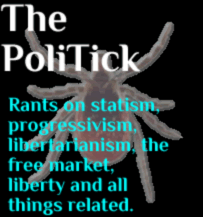“If by a "Liberal" they mean someone who looks ahead and not behind, someone who welcomes new ideas without rigid reactions, someone who cares about the welfare of the people--their health, their housing, their schools, their jobs, their civil rights and their civil liberties--someone who believes we can break through the stalemate and suspicions that grip us in our policies abroad, if that is what they mean by a "Liberal", then I'm proud to say I'm a "Liberal.”
― John F. Kennedy, Profiles in Courage
I don't have as much problem with JFK as I do with other liberals, but that's mostly because "liberal" meant something different to him than it does to today's liberals. Of course, today's liberal progressive identifies with JFK, and ignores other of his statements, such as "Ask not what your country can do for you; ask what you can do for your country."
The distinction between classical liberal and modern liberal is a profound one, although to a Marxist, it is nonexistent (to them, everybody who isn't a Marxist is a liberal). Classical liberals were libertarians. They preferred a minimal government and maximal liberty to the state of affairs that characterized the world of the Enlightenment era (and which, sadly, characterizes the world of today). The Declaration of Independence, I'm fond of pointing out, is one of the most beautiful and detailed elucidations of the Non-Aggression Principle and its consequences. The Constitution of the United States is built on the same premise, namely, that government must be restricted and controlled if we are to have true liberty. Although equality was one favored principle of the Enlightenment thinkers, liberty was even more so. We can all be "equal in the eyes of the law" without the employment of statism to "make us equal." Equality, to the Founders, meant equality of opportunity and equality of legal and political status. It didn't mean equal wealth, equal privilege, or equal influence on society. It meant equal means of participating in the market (property rights) and equal means of participating in the political process and protecting one's self from government (civil rights).

No comments:
Post a Comment